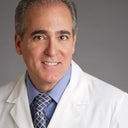Thank you for your excellent question. I wish more patients would ask it. I will start by telling you that over my 23 years in practice, some the worst results I have seen from breast lifts have been those in which the donut or "Benelli" lift was used. I have seen a few acceptable results but those have been few and far between. This is supported by the fact that the largest number of malpractice suits from cosmetic breast procedures involve this type of lift. In order to understand this, a little history is necessary. The Benelli lift was developed by, you guesed it, Dr Benelli, a plastic surgeon in France who was looking for a way to treat smaller breasted women who had loose, slightly droopy breasts and did not want any increase in size. In those patients the procedure can give very nice results since the actual breast tissue is reshaped and then the LOOSE skin is gathered in toward the areola after detaching it from the breast. The problem is that over the years surgeons who don't seem to understand physics have tried to combine this technique with augmentation only to, in some cases, have disastrous results in order to avoid a vertical scar from the areola down to the inframammary fold as in the "lollipop" lift. If you think about it, it makes no sense to, on the one hand place an implant that will to some degree fill out loose skin, then cut out a donut of skin around the areola and with sutures pull the skin in toward the reduced areola under tension. Surgeons will place a "pursestring" permanent suture around the areola with the idea that it will keep the areola from widening. This is what Dr Benelli describes for his patients with loose skin. The problem with doing this under tension is that something has to give. If the pursestring holds then the breast will tend to get flattened from the front, keeping it from having a pleasing conical shape. If the pursestring breaks then the forces of tension will pull the areola outward, widening it and also possibly widening the scar. If the skin has not been pulled in evenly then the areola will also become misshapen with a very irregular border. If the patient had a very large areola to begin with and the outside incision of the donut was at the border of the areola then the breast will probably look like it would have looked had no lift been done at all. In those cases it is usually possible to repair the result by converting to a "lollipop" without needing to remove the implant or place a smaller one. If the outer circle of the donut was much larger than the areola then it is often necessary to remove the implant, making the breast smaller, so that it can be repaired. This because so much skin has been removed with the donut that there is not enough skin left to convert to a vertical scar lift unless the volume of the breast is reduced. Having said all that, it is important that the surgeon you decide to go with is certified by the American Board of Plastic Surgery and is also a member of The American Society for Aesthetic Plastic Surgery. It may well be that your breasts are appropriate for a donut lift but if you decide to go that way you should ask to see several pictures of your surgeon's results in patients whose breasts look similar to yours as well as to ask him to show you pictures of some results that didn't go so well. I hope this has been helpful.















